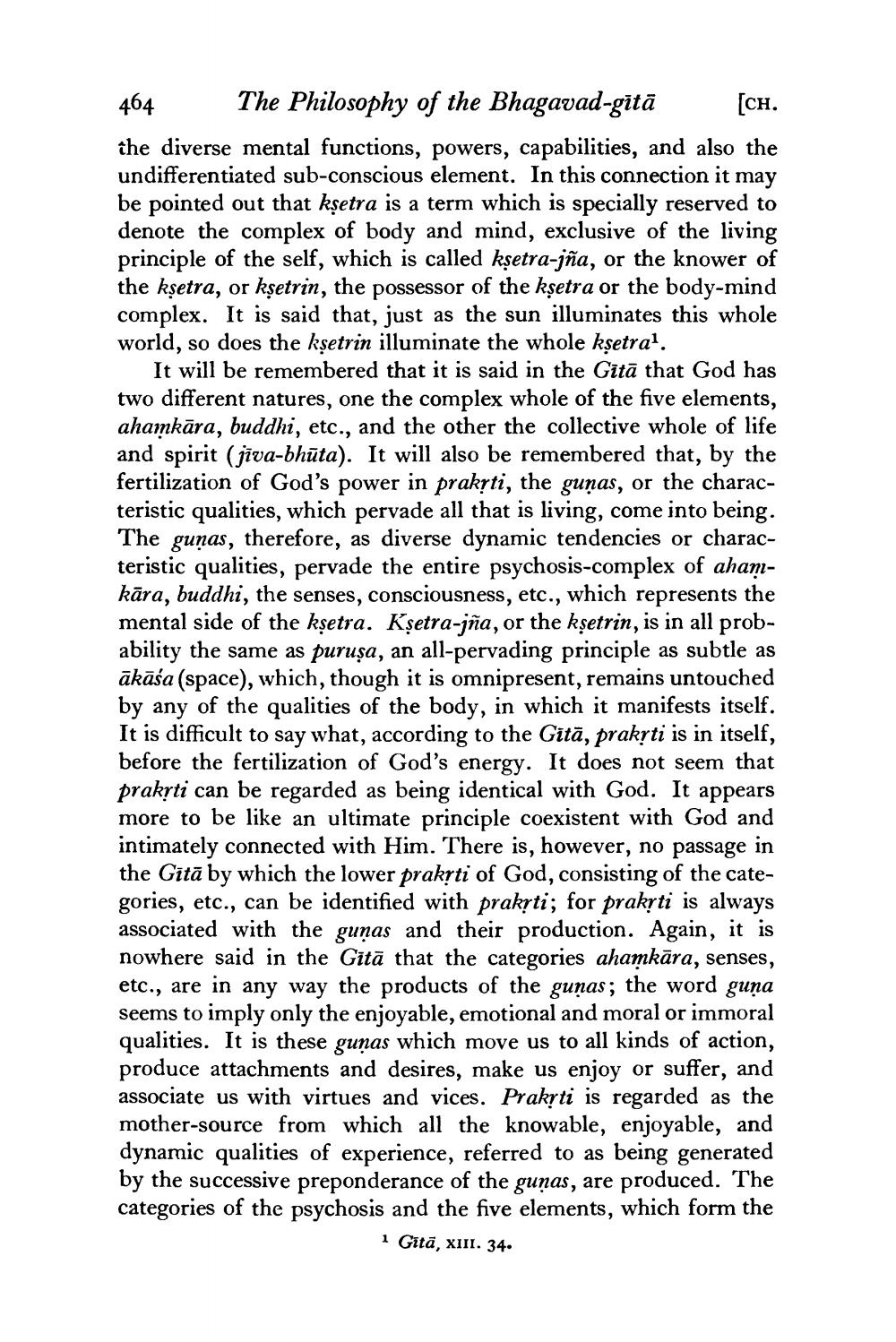________________
464 The Philosophy of the Bhagavad-gitā [ch. the diverse mental functions, powers, capabilities, and also the undifferentiated sub-conscious element. In this connection it may be pointed out that kşetra is a term which is specially reserved to denote the complex of body and mind, exclusive of the living principle of the self, which is called kşetra-jña, or the knower of the kşetra, or kşetrin, the possessor of the kşetra or the body-mind complex. It is said that, just as the sun illuminates this whole world, so does the kşetrin illuminate the whole kşetra'.
It will be remembered that it is said in the Gitā that God has two different natures, one the complex whole of the five elements, ahamkāra, buddhi, etc., and the other the collective whole of life and spirit (jīva-bhūta). It will also be remembered that, by the fertilization of God's power in praksti, the guņas, or the characteristic qualities, which pervade all that is living, come into being. The guņas, therefore, as diverse dynamic tendencies or characteristic qualities, pervade the entire psychosis-complex of ahamkāra, buddhi, the senses, consciousness, etc., which represents the mental side of the kşetra. Kșetra-jña, or the kşetrin, is in all probability the same as puruṣa, an all-pervading principle as subtle as ākāśa (space), which, though it is omnipresent, remains untouched by any of the qualities of the body, in which it manifests itself. It is difficult to say what, according to the Gitā, prakặti is in itself, before the fertilization of God's energy. It does not seem that prakrti can be regarded as being identical with God. It appears more to be like an ultimate principle coexistent with God and intimately connected with Him. There is, however, no passage in the Gitā by which the lower praksti of God, consisting of the categories, etc., can be identified with prakrti; for prakyti is always associated with the guņas and their production. Again, it is nowhere said in the Gitā that the categories ahamkāra, senses, etc., are in any way the products of the gunas; the word guna seems to imply only the enjoyable, emotional and moral or immoral qualities. It is these guņas which move us to all kinds of action, produce attachments and desires, make us enjoy or suffer, and associate us with virtues and vices. Prakyti is regarded as the mother-source from which all the knowable, enjoyable, and dynamic qualities of experience, referred to as being generated by the successive preponderance of the gunas, are produced. The categories of the psychosis and the five elements, which form the
1 Gitā, XIII. 34.




